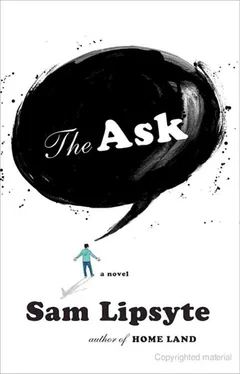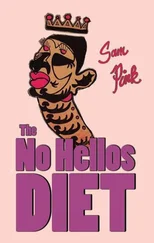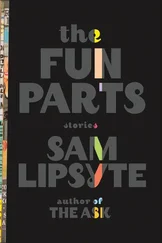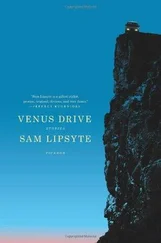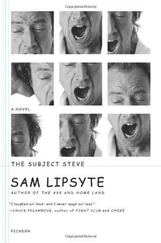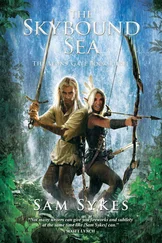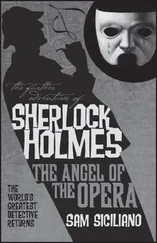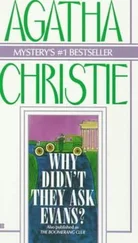Once I walked this road on early spring evenings, knapsack slung on one shoulder, the cars ripping along, headlights slashing the yard barrels and wet lawns, my hair wet, too, from the track team showers, my body sore and buzzy from the weight room, all those snatches and squats and curls.
I threw the javelin then, was no champion, not even a contender for regional ribbons, just good enough to know the happiness of making your body a part of that spear, to get a good trot up to the throwing line, to slip into a rabbity sideways hop and snap your hips, launch a steel-tipped proxy of yourself at the sky.
I would savor the long walk home, the sweet, achy daze of it, drift into the jagged excitements of my future, paintings, parties, people, women people, a ceaseless celebration of my greedy, spangled destiny. There was nothing noble about such want. But it was me, and maybe some of you, walking home from school in April drizzle, dreaming.
And maybe it was me and some of you who took a nap before dinner, lay back on the sofa with a book, the assigned reading, another novel with the old-fashioned folk, their stiff speeches and chafed hearts. Maybe some of you, like me, shut your eyes with the book open on your chest, tumbled into another world, near and impossible, homeroom skin beneath rain-damp denim.
Certain noises would sever the reverie, a cough, my mother in the kitchen, the local news flipped on the kitchen TV-arson and elevator assaults across the river, or Don Mattingly, Donnie Baseball, with his leopard swing and porn-star mustache, on another hitting streak for the Yankees-the sounds of dishes pulled from their shelves, the rubber smooch of the refrigerator door, the tepid click of salad tongs, the hiss of garlic, frying.
No, Claudia never cooked with garlic. Maura did.
But this house in Nearmont, with all its woes, a Jolly Roger here and also never here, and the poison sadness seeping from my mother, even then this house in Nearmont was always a home, heated, with food, and familiar noises, and I was lucky to have it, this home to trust and hate, to launch myself from like a javelin that tails and wobbles and does not drive into the turf but skids to a halt at a slightly less-than-average distance, a mediocre distance, from the lumped lime line.
This is what the blessed get. A heated box, a stocked pantry, a clumpy metaphor.
The blessed get legs. The unblessed get humps, titanium girls.

I turned onto Eisenhower. Lights blazed in the bay window. Francine opened the door before I could knock.
"Come in, honey," she said.
I stepped into the foyer, heard Purdy's voice.
He sat with my mother on the sofa, sacks of chocolate and licorice between them. Michael Florida tipped forward in the rocking chair, winked.
"Purdy," I said, took a seat on the hassock.
"How come you never invited me to your mother's house? She's a force!"
"I've been calling you," I said.
"Your friend is making me fat," said Claudia. "I'll never fit into my racing suit."
"Give me a break," said Purdy. "You're a knockout."
"I like this guy," said my mother.
"Did you get my messages?" I said.
"I'm sure I did."
"What the fuck does that mean?"
"Sweetie," said Claudia, "you seem a little wound up."
"Your mom was just telling us some funny stories about young Milo Burke."
"Hilarious stuff," shouted Francine from the kitchen. "Hey, guys, I've got stone-ground crackers and pony cans of pumpkin beer. Who's game?"
"Bring on the crackers!" called Michael Florida. "Heck, let me get in there and help."
Michael Florida trotted off to the kitchen.
"What kinds of stories?"
"Well, we just heard the one where you brought this nice Japanese girl home and then, just as you were about to kiss her, you shit your jeans," said Purdy. "That was pretty good."
"That never happened."
"Plausible deniability. Well done."
"I don't care. It just didn't happen. My mother is conflating."
"It's true," said Claudia. "I'm a notorious conflater. And we shouldn't tease Milo. He's always been thin-skinned. A very nervous boy. Anxious."
"I wonder why," I said.
"These things are chemical," said Claudia. "We all have different temperaments."
"So you think the nurture bit was top quality? Even the sociopathic cokehead dad part? And your perpetual war on flatware?"
Claudia smiled.
"Who knows what helps and what hurts, honey. Francine! Let me do something! Purdy, would you and your friend like to stay for dinner?"
"Love to," said Purdy. "But we've got to get back to the city. Melinda really appreciates me being around these days."
"Of course. It's so wonderful. A baby."
"Mom, you hate children."
"You know that's not true, Milo."
"Just mine."
"Don't be silly."
Claudia rose, joined Francine in the kitchen.
I leaned forward on my elbows toward Purdy.
"What the hell are you doing here?"
Purdy glanced over at the glass door that led out to the patio, the yard.
"Tetherball? Lordy. May we?"
We walked out to the rusted pole. A shrunken ball, just a hunk of desiccated leather, dangled from the cord. Years ago, during a rare moment of domestic tranquillity, Jolly Roger had dug the dirt and sunk the pole and poured the cement. We'd played a few spirited games after the cement dried, to "test the apparatus," then never again. Later, in my teens, I liked to stand out there alone, punch the ball, watch it whip and switch directions, duck as the thing looped back around, asteroidal, screaming.
All the creatures of planet Milo, extincted.
Purdy unwound the ball, slapped it into the air. The pole creaked. The ball sliced through the patio lights.
"What a crappy setup," he said.
"It's not so bad."
I whacked the hunk back. Purdy caught it.
"You know what?" he said.
"What?"
"I always regretted not convincing you to work for me back in the day. It really was the best thing you could have done. We both knew the art stuff wasn't going to happen."
"We did?"
"You didn't?"
"No, I didn't."
"Right, I guess you didn't. Or you wouldn't have kept trying."
Purdy tossed the ball up, smashed it into orbit.
"Why didn't you tell me?" I said.
"How could I? Besides, what did I know? I'm not in charge of everybody's destiny."
"You're not?" I said.
Purdy stared until he seemed to understand.
"No," he said. "I'm not."
"Oh."
"Don't be so down, buddy. I'm sorry about this job of yours. I know they pulled the rug out on you today. We all just thought it was best to uncomplicate things. To disentangle. But I'll make it up to you somehow."
"I'm sure you will."
"There's that negative tone again. You know, Milo, it was always pretty hard to be your friend. You have a lot to offer but you're so afraid to give up your best. It's like at the supermarket, when they put the old milk at the front of the shelf, so people will buy it. That's you."
"What's me? The milk? I'm the milk? Or am I the supermarket? Or am I buying the milk?"
"I'll get back to you on that."
"Get back to me on this: Why did you come here tonight?"
"I came by to say hello. To make sure we were cool."
"Cool?"
"That's right, Milo. Are we cool?"
"Sure, we're cool. I mean, you are definitely cool."
"Good."
"What could be cooler than all the stuff you've done? To your wife. To your girlfriend. To your son. That's cool shit. I could be cool, too. I could learn."
"See," said Purdy, caught the ball, cradled it. "You're confusing things. You think you're talking to me, but you're not. Because you have no right to talk to me that way. And because you're talking to somebody else."
Читать дальше
